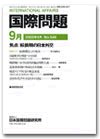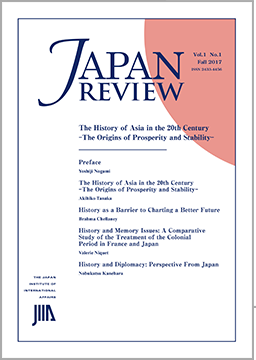Column/Report
|Top page|Print/Mobile page|Tweet
Strategic Annual Report 2019 : Building a Sustainable Socioeconomic System and Restructuring Economic Global Governance
Globalization has brought enormous wealth to the world as a whole, and the economic gap between developed and emerging countries has narrowed rapidly. On the other hand, the shift of the center of economic gravity to emerging economies has become more apparent since the global financial crisis, and dissatisfaction over intensifying competition with emerging economies, including the relocation of production bases overseas, has increased. In addition, the income gap has been widening in many countries due to the shock caused by the financial crisis in 2008 and the disparity of wage levels between skilled and unskilled workers driven by technological progress. Today, due in part to the negative aspects of globalization, we witness unprecedented distrust in politics and increasingly eroding social cohesion, leading to the rise of populism, protectionism and unilateralism as global trends. In particular, the United States is changing its long-established role in supporting the post-World War II liberal international order, and this has disrupted global governance and multilateralism. Furthermore, the rise of China and other emerging countries as well as the development of the digital economy require reforms to existing frameworks for economic global
governance such as the WTO to address new issues.

(2019-12-02)
Topics
Membership
 Archive of high-quality scholary works translated from Japanese to English
Archive of high-quality scholary works translated from Japanese to English
A highlight of JIIA's recent activities and a summary of its organization.
Publication
Journal

Kokusai Mondai (International Affairs)
No.680 April 2019 "Protecting Human Rights via International Procedures"
Vol.2 No.4 Spring 2019
"Japan and the Post-World War II Liberal International Order"
Books
 What Do Alliances Mean to the US?
What Do Alliances Mean to the US?
(Fumiaki Kubo ed., 2013)






